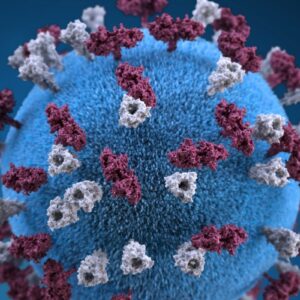Authorities in suburban New York have closed a 41-year-old cold case that haunted the community of Lynbrook for decades. Prosecutors say new DNA evidence has identified Richard Bilodeau, 63, as the man responsible for the 1984 murder of 16-year-old Theresa Fusco.
Fusco vanished in November 1984 after being fired from her job at Hot Skates, a popular roller rink in Lynbrook. Her disappearance — and the later discovery of her body — sent shockwaves through Nassau County, leaving residents fearful and frustrated as years passed without answers.
DNA Evidence From a Smoothie Cup Breaks the Case
According to Nassau County District Attorney Anne Donnelly, investigators had been monitoring Bilodeau for months when a crucial break came earlier this year.
In February, Bilodeau visited a smoothie shop near his home in Center Moriches. Detectives retrieved his discarded smoothie cup and straw from the trash and sent them for forensic testing.
“The DNA from that straw, Richard Bilodeau’s DNA, was a match,” Donnelly said during Wednesday’s press briefing. “The DNA in this case led us straight to Richard Bilodeau.”
U.S. Inflation Rises Amid Tariffs, Consumer Prices, and Federal Reserve Concerns

Charges Filed Decades After the Murder
A Nassau County grand jury indicted Bilodeau on two counts of second-degree murder — one for homicide and another for killing during the commission or attempted commission of first-degree rape.
He was arrested on Tuesday and pleaded not guilty during his arraignment. Donnelly said Bilodeau denied knowing Fusco, but “science proves otherwise.”
“Through his denials that he had ever known her name, who she was, he made a kind of flippant comment about the 1980s,” Donnelly said. “He said, ‘People got away with murder.’ Well, I’ll tell you something, Mr. Bilodeau — I’ve got you now.”
If convicted, Bilodeau faces up to life in prison.
A Family’s Four-Decade Wait for Justice
For Fusco’s family, the arrest represents long-awaited closure. Her father, Tom Fusco, said he “never gave up hope” that his daughter’s killer would one day be found.
“It’s heartbreaking to go through this over and over again,” he said, “but this seems like a finalization, and I’m very grateful for me and my family to come to an end like this, rather than to constantly be a cold case situation.”
At the time of the killing, Bilodeau was 23 years old and living with his grandparents about a mile from the roller rink. Fusco’s body was later discovered buried under leaves and shipping pallets — she had been strangled, beaten, and sexually assaulted, police said.
Three Wrongly Convicted Men Exonerated in 2003
The case gained national attention not only for its brutality but also for the wrongful convictions that followed.
Three men — John Restivo, Dennis Halstead, and John Kogut — were convicted of Fusco’s murder and spent nearly two decades in prison before DNA testing in 2003 proved their innocence.
The exonerations were a turning point for forensic science and criminal justice reform in New York. “For years, someone would ask me how I’m doing today,” Restivo told Good Morning America after his release. “I’d say, ‘Not good, I woke up on the wrong side of the wall this morning.’ Yesterday I was able to say, ‘I woke up on the right side of the wall.’”
A Case That Haunted a Community
Fusco’s murder — along with the disappearance of two other teens in the same area — led locals to dub the region the “Lynbrook Triangle,” a grim nod to the unsolved disappearances that once plagued Nassau County in the 1980s.
Now, authorities believe they’ve finally closed the circle. “The arrest of Richard Bilodeau brings justice to a case that has haunted this community for over four decades,” Donnelly said.






